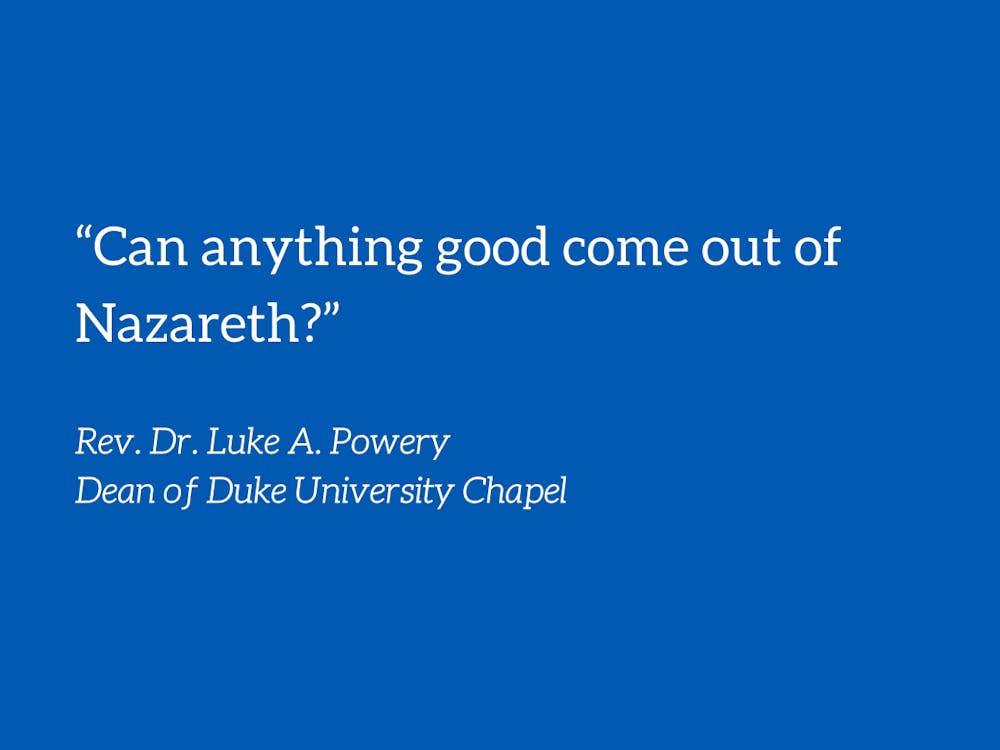In the Bible, one of Jesus’s followers asks, “Can anything good come out of Nazareth?” The question may seem obscure, but it points to a principle that can guide us today in navigating our political and social divisions and injustices.
The question is asked in the Gospel of John by the future-disciple Nathanael when his friend Philip tells him that he has discovered God’s great leader for their nation: “Jesus son of Joseph from Nazareth.” That’s when Nathanael replies, “Nazareth?” with what must have been a shocked look on his face.
“Really?” You can imagine Nathanael thinking this because Nazareth is not a bustling urban center with high-rise office buildings, a kickin’ nightlife, and a Starbucks on 9th Street. Historically, Nazareth was a small rural village with a population of perhaps 500–2000 people, located in the hill country of Galilee, known for fishing and farming and for having lots of foreigners, which wasn’t a good thing to some back in that day. Former longtime minister at Harvard’s Memorial Church Rev. Peter Gomes said, “Nazareth is not the site of great expectations.”
“Can anything good come out of Nazareth?” Prejudice and stereotypes about Nazarenes undergird Nathanael’s question. Can anything good come out of somewhere different than where I’m from geographically, theologically, racially, ethnically, educationally, and politically? Those Republicans, those Democrats, those liberals, those conservatives? Can anything good come from those people? These questions represent where we currently are in this nation—full of divisions and polarization over difference.
We might be tempted to judge a present-day site of “Nazareth” because we’ve never been there, never been on the other side of the tracks, never been on the backside of the backyard of nowhere. We’ve never experienced Nazareth and don’t know it nor its people; we’ve only heard about them on podcasts or a YouTube video clip or a radio show. When we don’t know any Nazarenes for ourselves, we may ask the question, “Can anything good come out of Nazareth?’
We forget that “Nazarenes”—i.e., anyone not like us—are human beings too and have struggles and embody beauty. We forget, as the Rev. Dr. Martin Luther King Jr. reminds us, that “We are caught in an inescapable network of mutuality; tied in a single garment of destiny. Whatever affects one directly, affects all indirectly... I can never be what I ought to be until you are what you ought to be. You can never be what you ought to be until I am what I ought to be.” We forget that Dr. King also said, “There is some good in the worst of us and some evil in the best of us.”
Some historical accounts about Dr. King say that he often carried Howard Thurman’s book Jesus and the Disinherited with him when he traveled. Thurman was in college with Dr. King’s father and the two families were close for decades. Historian Vincent Harding tells us that Dr. King “likely had the message of [this book] etched on his heart.” The emphasis of that book is on how Jesus of Nazareth was a poor Jew living under Roman oppression, a disinherited Nazarene living in poverty, whose spirit gave the oppressed, those whose backs were against a wall, courage while he pronounced the good news of freedom to them. His Nazarene way showed a path of loving liberation, not nationalistic domination.
Dr. King’s final mission was in Memphis, Tennessee, fighting on behalf of disenfranchised sanitation workers as part of the Poor People’s Campaign. Dr. King recognized that garbage collectors were also human beings with gifts to offer the world. He knew that they might not have thousands of likes on social media or be a part of the upper echelons of society, but they are children of God, created in the image of God, and that alone gives them worth, value, and dignity, even if they come from “Nazareth.”
When Nathanael asked, “Can anything good come out of Nazareth?” his friend Philip gave only an oblique answer: “Come and see.” Taking him up on the offer to meet the man from Nazareth, Nathanael gets his answer: Yes! There are good gifts and even God in Nazareth. He learns the Nazareth principle: Those whom you despise and disregard at first may turn out to be the source of your salvation.
Rev. Dr. Luke A. Powery is the Dean of Duke University Chapel. His column runs on alternate Mondays.
Get The Chronicle straight to your inbox
Signup for our weekly newsletter. Cancel at any time.

